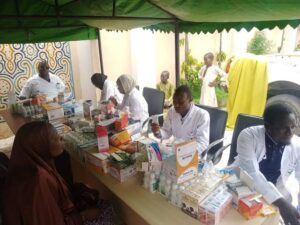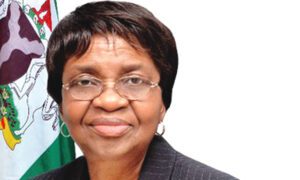
WHO shares insight on new COVID-19 variants, advises on virus sequencing
As the World Health Organisation (WHO) celebrated the discovery of COVID-19 vaccine towards the end of 2020, the agency raised a toast for an achievement towards ending the pandemic.
The UN health agency was, however, faced with a new challenge of understanding the new variant of COVID-19, following reports of virus variants from some countries.
The reports of virus variants from the Kingdom of Denmark, the UK and Northern Ireland as well as South Africa have raised interest and concern on the impact of viral changes.
Hence, WHO has expanded its scientific collaboration and monitoring of emerging variants of SARS-CoV-2, the virus that causes COVID-19 to know the impact of the new variants on transmission of the virus.
It was against this backdrop, that the agency convened a virtual meeting on Jan. 12, which attracted no less than 1, 750 scientists from 124 countries to discuss the emerging variants of the virus on diagnosis, among others.
During the virtual rendezvous, Dr Tedros Ghebreyesus, WHO’s Director-General, said science and research had played a vital role in responding to the pandemic and would continue to be the heart beat of research and development.
“Scientists noted the importance of research to detect and understand early on the potential impact of emerging variants on diagnostics, treatments and vaccines.
“There was a consensus on the importance of integrating the new SARS-CoV-2 variants research into the global research and innovation agenda, while enhancing coordination across disciplines.’’
According to him, WHO is seeking expertise on the new variants of SARS -CoV-2 that have been reported from the UK, South Africa, Nigeria and Japan.
Speaking on the development in Africa, Dr Matshidiso Moeti, WHO’s Regional Director for Africa, in an online press briefing on Jan. 14 said a new variant of COVID-19 had been spreading in South Africa.
The regional director said a new variant of the virus called `501Y.V2’ was circulating widely in South Africa, accounting for most of the new infections during the second wave.
According to her, mutations of the virus are unsurprising as the more the pandemic spreads the higher the likelihood of changes.
“However, preliminary analysis finds the 501Y.V2 variation to be more transmissible. Genomic sequencing has found the variants present in Botswana, the Gambia and Zambia.
“Deeper investigations are underway to fully understand the epidemiological implications, but at present there are no indications the new variants increases the severity of the disease.
“Even if the new variant is not more virulent, a virus that can spread more easily will put further strain on hospitals and health workers, who are in many cases already overstretched,” Moeti said.
In addition, she said Nigeria was carrying out more investigations on a variant identified in samples collected in August and October, 2020.
She, however, allayed the fears of Africans over the new variants, saying “no need to panic because new a variant has emerged; the new variant is not news until it shows characteristics that are problematic to the response.”
Sharing the same thought with Moeti, Dr Chikwe Ihekweazu, the Director- General of the Nigeria Centre for Disease Control (NCDC) said “the new strains of virus are no news.
“For instance, there is nothing to report about the variant found Nigeria but it is news when it is associated with increase in transmission.’’
Ihekweazu, speaking during the WHO briefing, explained that there was still no evidence to show that the variant found in Nigeria, the p681h variant is associated with increased transmission of the virus.
Meanwhile, Dr Ali Yahaya Team Leader, Antimicrobial Resistance WHO Regional office for Africa, in a video posted on the regional office twitter account @WHOAFRO spoke on the impact of 501Y.V2.
Yahaya said 501Y.V2 had spread a little faster so it has been assumed that this year’s variant can be transmitted quickly, but this hypothesis is being investigated to see if it true or false.
“So, to respond to the new variant, we have opportunity for countries to implement interventions for management of COVID-19.
“It is very important to comply with prevention measures and also encourage countries to carry out virus sequencing to be able to identify new variants that may be potentially contagious or responsible for high transmission.’’
The official said that WHO had been supporting countries to respond to the new variant.
He said WHO and Africa Centre Africa Centres for Disease Control and Prevention (Africa CDC) had established a network of laboratories in Africa to conduct the sequencing of the virus.
“WHO is working with groups of international experts to better study the different mutations in terms of disease transmission, diagnosis, or vaccine effectiveness including potential changes in relation to disease severity,’’ Yahaya added.
Above all, WHO’s Emergency Committee (EC) on COVID-19, in a virtual meeting on Jan. 15, called for a global expansion of genomic sequencing and sharing of data among countries and partners.
They urged countries to increase molecular testing and genetic sequencing and share sequences and meta-data with WHO, through publicly accessible databases to enhance global understanding of the virus evolution and inform response efforts.
They also advised countries to support coordinated global research efforts to better understand critical unknowns about SARS-CoV-2 specific mutations and variants.
In addition, the committee urged WHO to develop a standardised system for naming new variants that avoids geographical markers, an area WHO has already begun work on.



